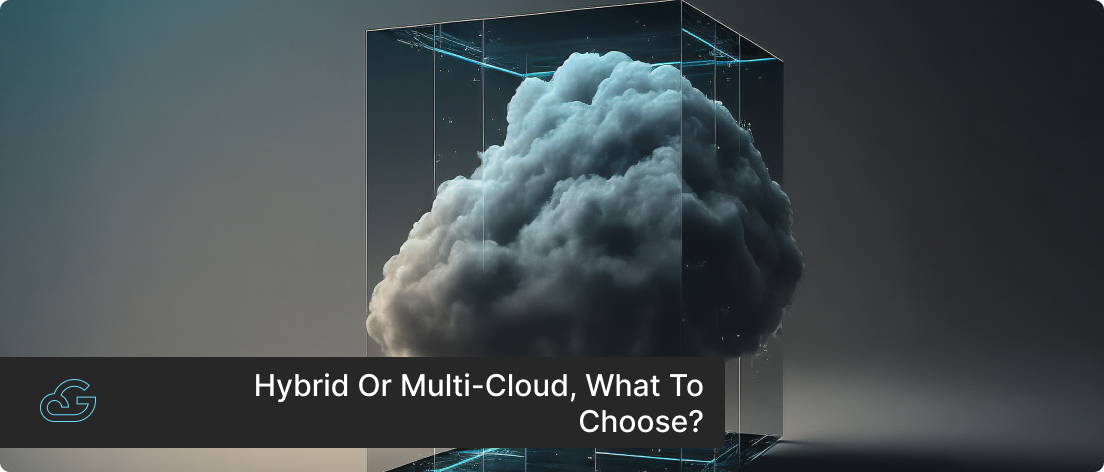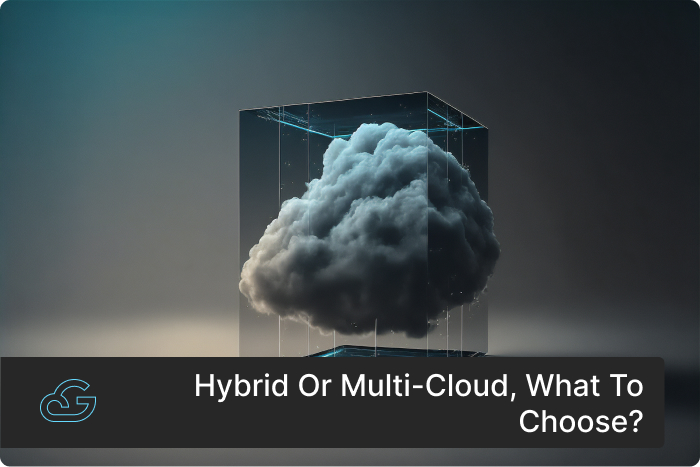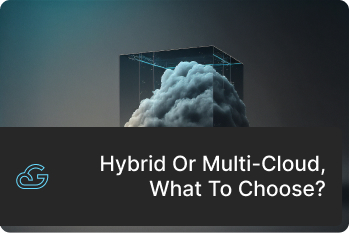Blogs / Hybrid and Multi-cloud
Hybrid Or Multi-Cloud, What To Choose?
By
Vineeth Babu
Posted: November 17, 2020
• 4 Min Read
Cloud computing has evolved to offer multiple models for organizations, including multi-cloud and hybrid cloud. Reports says, “92 percent of enterprises have a multi-cloud strategy out of which 80 percent have a hybrid cloud strategy”. As every organization has unique needs and requirements, adapting a deployment strategy to those specific needs may be necessary to ensure an effective solution.
Businesses new to cloud adoption may find the architecture of these delivery models confusing but understanding their definition and purpose can help in selecting the best one for specific applications and goals.
Hybrid Cloud Vs. Multi-Cloud: What Is The Difference?
Hybrid cloud refers to a type of cloud computing architecture that combines a public cloud and a private cloud by allowing data and applications to be shared between them. The public cloud portion of a hybrid cloud is usually provided by a third-party cloud service provider and is used for running applications and storing data that are accessible to the public. Similarly, private cloud is usually owned and operated by the organization itself and is used for running applications and storing data that need to be kept behind the organization's firewall for security or compliance reasons.
Multi-cloud refers to the use of multiple cloud computing services from different providers (public or private) in a single heterogeneous architecture. This can be done for a variety of reasons, such as to reduce vendor lock-in, to take advantage of the different features and capabilities of each cloud provider, or to ensure that applications and data are not dependent on a single provider.
What to choose?
When deciding between hybrid cloud and multi-cloud development, there are several factors to consider, including the specific needs and goals of the organization, the available resources, and the level of complexity involved.
Explore the scenarios below to decide where your business fits in.
Multi-cloud can be a better choice in situations where:
-
Virtualization and new opportunities are needed without internal infrastructure.
-
Multiple customized cloud strategies are needed.
-
Your organization wants to take advantage of the specific features and capabilities of different cloud providers or wants to avoid vendor lock-in.
-
Performance and latency issues have been faced by the present provider and want to try more efficient alternatives.
-
Multiple decentralized services need to be managed.
-
If your organization has the resources and expertise to manage multiple cloud platforms.
Hybrid cloud can be a better choice in situations where:
-
Certain data or applications need to be kept in a private cloud, while others can be hosted in a public cloud.
-
Your organization requires a high level of control over its infrastructure and data or has specific compliance or security requirements.
-
Your organization has limited resources or expertise in cloud computing.
-
Sensitive data requires a higher level of security than a public cloud can provide.
-
The organization require custom architecture that can only be satisfied by a private cloud.
-
Migrating legacy on-premises infrastructure to the cloud is not currently feasible.
Here are a few steps you can follow to choose between hybrid cloud and multi-cloud development:
Evaluate your organization's needs and goals
Consider factors such as the level of control and security required, the specific features and capabilities you need from a cloud platform, and your budget.
Assess your organization's resources and expertise
Consider whether your organization has the resources and expertise to manage multiple cloud platforms, or whether a single provider would be easier to work with.
Research different cloud providers
Look into the different features and capabilities offered by various cloud providers and consider which ones would be most suitable for your organization's needs.
Consider the complexity of the project
Consider the complexity of the project and whether a hybrid cloud or multi-cloud approach would be more suitable.
Consult with a cloud expert or technology consultant
A cloud expert or technology consultant can provide valuable guidance and advice on the best approach for your organization.
Final Words
Carefully evaluating these factors will help you determine the best approach suitable for your organization. Ultimately, the decision between hybrid cloud and multi-cloud development will depend on the specific needs and goals of your organization. It may also be helpful to consult with a cloud computing expert or a technology consultant to determine the best approach.


Get Know More About Our Services and Products
Reach to us if you have any queries on any of our products or Services.











